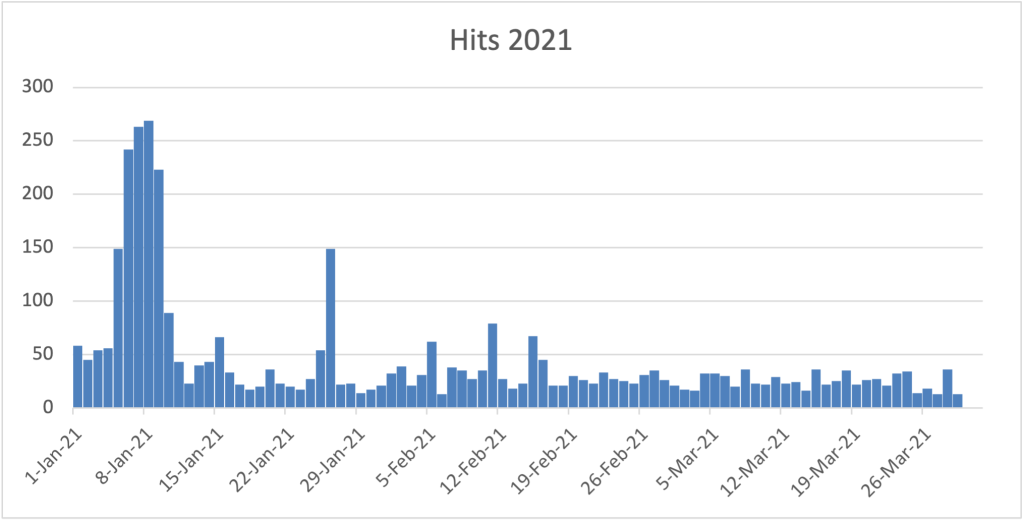Blogging continues, though it isn’t clear if anyone is even looking at what I post.
Hits are wa-a-y down. Where is everybody?

Obviously, the posts are better than ever ( : – ) ), so what’s going on?
Is this pandemic related? Is this something to do with global politics, e.g., blocking in China or EU? Or maybe changes in WordPress reporting. I dunno.
Band Names
As always, I noted some Dave Barry tribute band names, taken from real scientific and technical publictions.
Stochastic Parrots
Neanderthal ears
The Laschamps Excursion (Pronounced Las Champs, or in SoCal, LA’s Champs)
The Chicxulub Impactors (Or just Impactor)
Books Reviewed
Fiction
Smoke by Joe Ide
Milk Fed by Melissa Broder
A Thousand Ships by Natalie Haynes
Fake Accounts by Lauren Oyler
Trio by William Boyd
Outlawed by Anna North
Liar’s Dictionary by Eley Williams
Tropic of Stupid by Tim Dorsey
The Sun Collective by Charles Baxter
Aphasia by Mauro Javier Cárdenas
The Arrest by Jonathan Lethem
Deadly Education by Naomi Novik
Bring Me the Head of Quentin Tarantino by Julián Herbert
Non-fiction
The Light Ages by Seb Falk
Kindred by Rebecca Wragg Sykes
The Last Million by David Nasaw
New Money by Lana Swartz
Extraterrestrial by Avi Loeb
